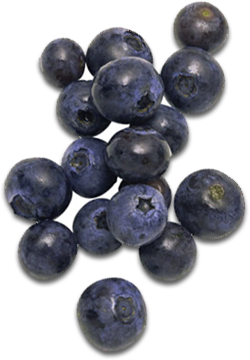no items to display
Spring Vegetables Feature: Carrots and Cauliflower
Hey vegetable lovers: Did you know that May is National Carrots and Cauliflower month? Well, I think it’s only right that we should be celebrating these two hearty and versatile veggies. Because in everyone’s excitement about the “superfood” du jour, it’s easy to forget just how nutritious some of the classic vegetables like carrots and cauliflower are.
Carrots are high in carotenoids, phyto-nutrients that neutralize unstable molecules called free radicals that can harm cells. Cauliflower is a cruciferous vegetable (like broccoli, cabbage, kale and Brussels sprouts) that contains phyto-nutrients known as glucosinolates, which help activate detoxification pathways in the body.
Not surprisingly, consumption of both carotenoids and cruciferous vegetables is associated with lower rates of cancer. In fact, if you follow this blog, you may remember reading that a recent study found girls whose intake of the carotenoid beta-carotene was highest during adolescence reduced their risk of benign breast disease by 50 percent later in life! (Women with benign breast disease have an increased likelihood of developing breast cancer.)
The health benefits of both of these vegetables go well beyond disease prevention, though. They also support your everyday health and well-being because they’re loaded with vitamins, minerals, and fiber.
A one-cup serving of carrots provides:
- A whopping 428% of the daily value (DV) for vitamin A (as its precursor beta-carotene), necessary for healthy vision, immune strength, and the integrity of skin and mucous membranes.
- 21% of the DV for Vitamin K, which the body needs for healthy blood coagulation and the metabolism of calcium.
- 14% of the DV for fiber, which is necessary for normal digestion and elimination and reduces the risk of heart disease.
- And only 52 calories!
Meanwhile, a one-cup serving of cauliflower provides:
- 77% of the DV for Vitamin C, which aids immune function and is needed for the health of connective tissue.
- 20% of the DV for Vitamin K.
- 14% of the DV for folate, a B vitamin that supports heart health, healthy aging, prevents birth defects, and may help prevent cancer.
- And a mere 25 calories!
Carrot recipes and cauliflower recipes are easy to incorporate into your diet. Both vegetables have the versatility of being edible whether raw or cooked, so they’re good for picky eaters who might prefer one texture over the other. (I, myself, am a raw carrot fan.)
Carrots sticks and cauliflower florets paired with a healthy dip make a tasty side dish at lunch or a great mid-afternoon snack. Try hummus (made from mashed chickpeas and tahini) or cream cheese mixed with yogurt and seasoned with garlic and fresh herbs. I also enjoy this dip made with tahini (ground sesame seeds). http://www.thefitnessambition.com/tahini-dipping-sauce-recipe/
Carrots and cauliflower are also natural additions to many kinds of soups and stews. In fact, you can steam them together, adding potato or parsnips if you like, and puree for a vegan soup base that you can season to your own taste. Both vegetables also roast well with olive oil, salt, garlic, and rosemary.
I’ve been trying to eat more vegetables and fewer carbs lately, so I’ve really enjoyed this cauliflower “rice”:
http://ohmyveggies.com/how-to-make-cauliflower-rice/
I also like a nice cup of carrot-cashew soup every now and then.
http://www.elliekrieger.com/savory-carrot-cashew-soup#.U4ZlS_ldXBY
I don’t have children, but my sister’s kids love a British comfort food called cauliflower cheese. It’s a simple casserole made of cauliflower, milk, cheese, and breadcrumbs.
http://www.bbcgoodfood.com/recipes/358608/cauliflower-cheese
What’s your favorite way to eat carrots and cauliflower? Share your best carrot recipes and cauliflower recipes!






